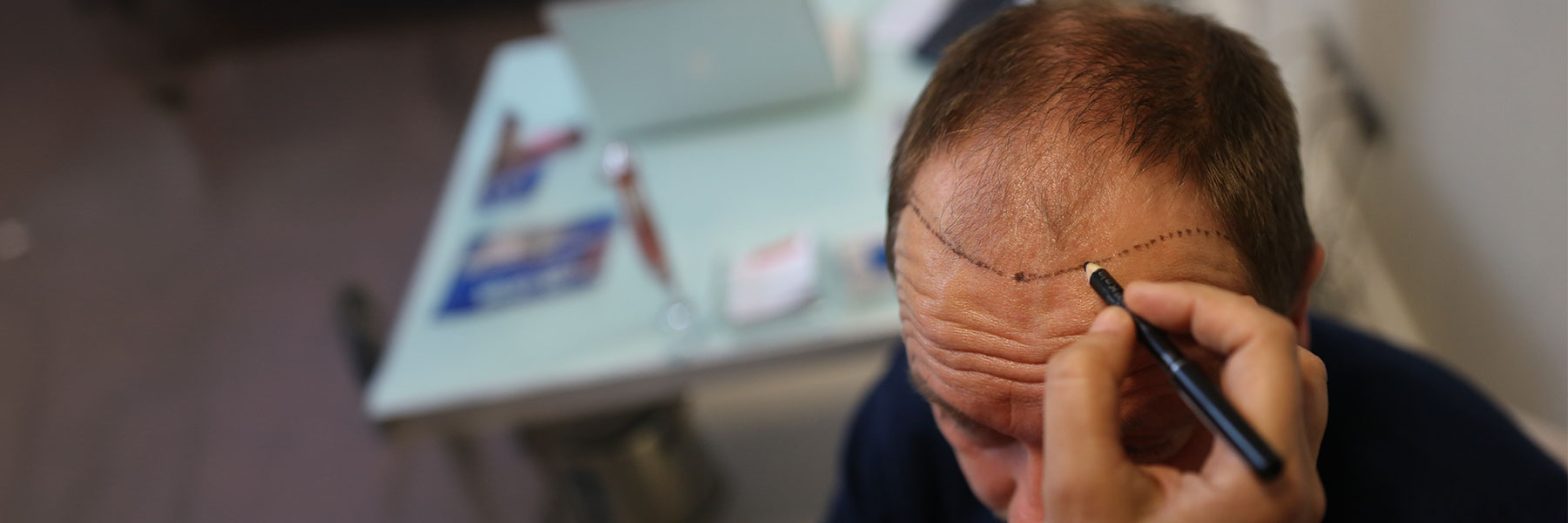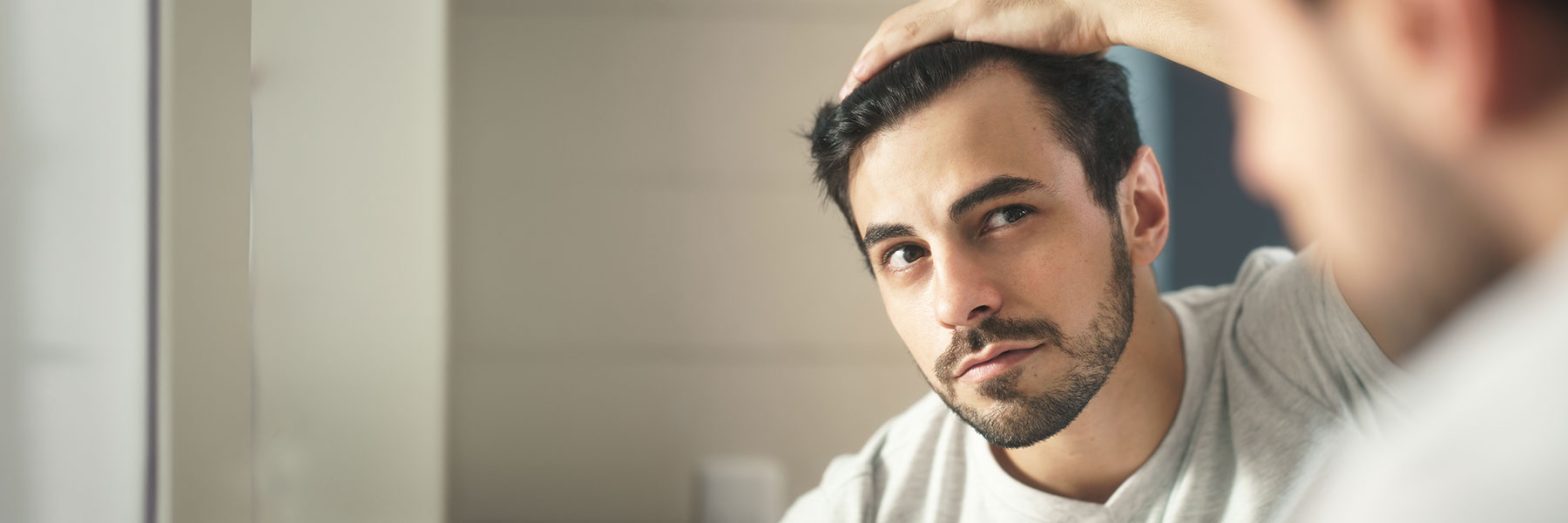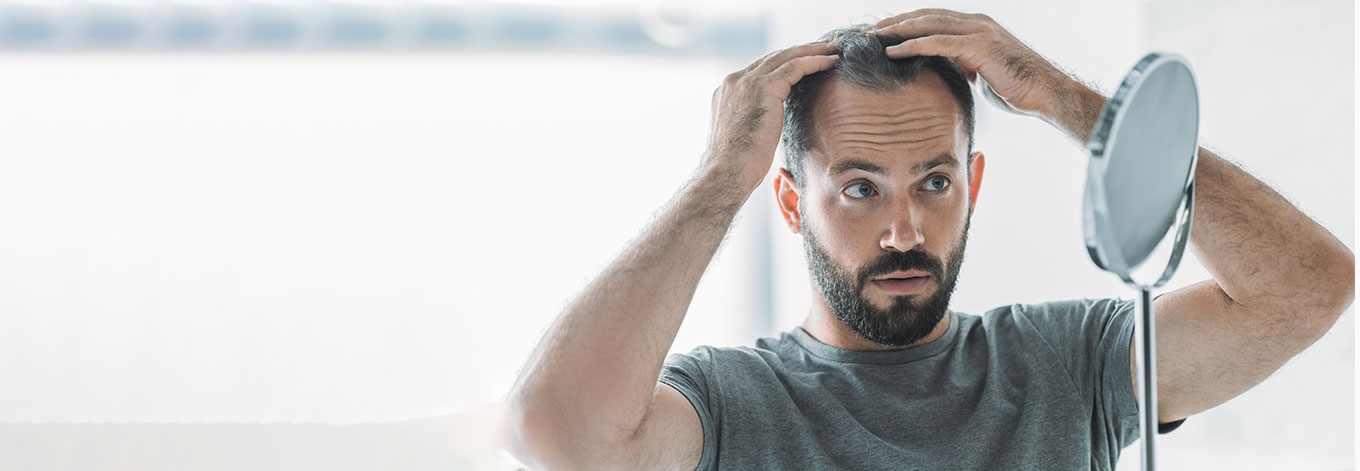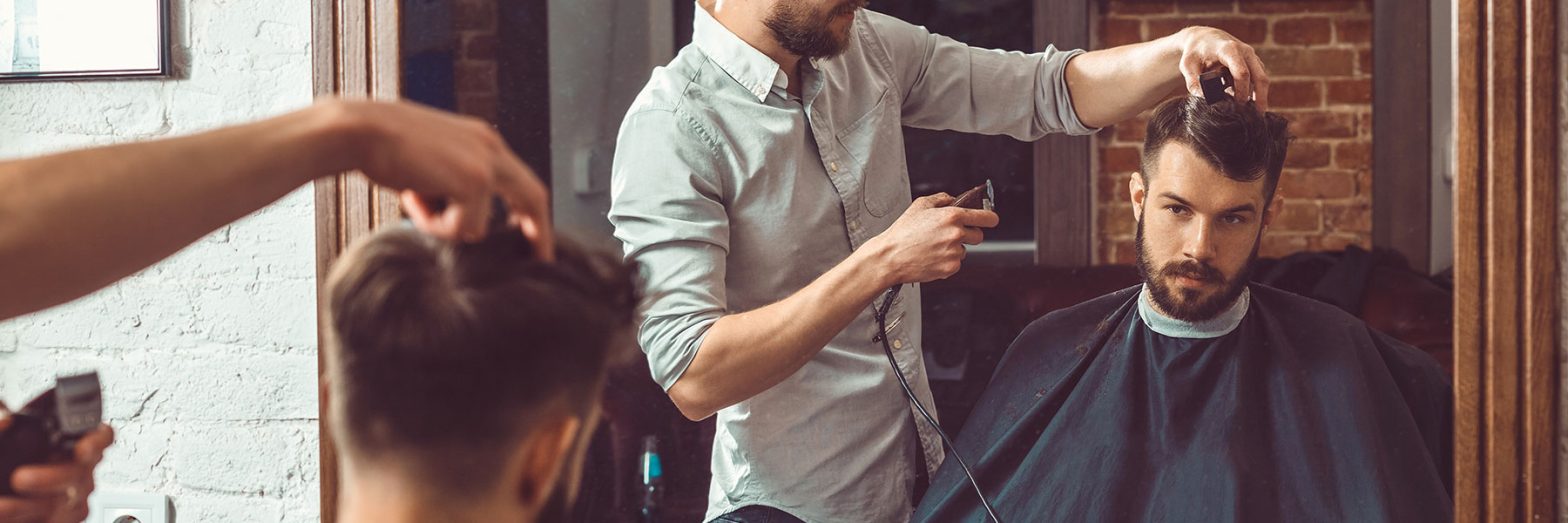Positive Studies suggest Baricitinib could be Alopecia Areata Treatment
HAIR LOSS & HAIR TRANSPLANTS
Baricitinib, which may also be referred to as Olumiant is medication used to treat rheumatoid arthritis. The drug is a new class of drug known as a Janus kinase (JAK) inhibitor as it works by reducing the immune system’s ability to create Janus kinase enzymes. These enzymes are responsible for causing inflammation that leads to typical rheumatoid arthritis symptoms such as pain, aching and stiffness.
There has since been research conducted into Baricitinib after patients taking the drug noticed an improvement on hair growth.
A research paper titled ‘Reversal of Alopecia Areata Following Treatment With the JAK1/2 Inhibitor Baricitinib’ was published in 2015. The paper was put together by a team in Israel who were originally monitoring a patient with Candle Syndrome’s response to Baricitinib. The patient also happened to be suffering with Alopecia Areata and they noticed a significant improvement to his hair growth during the time in which he was taking the drug.
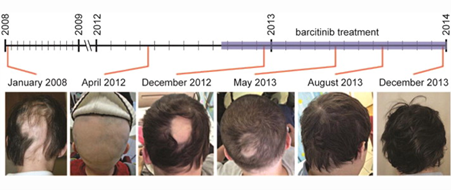
Eli Lilly and Company are the pharmaceutical company who create Olumiant (baricitinib). They have performed a number of studies to evaluate the efficacy and safety of taking a once-daily dose of baricitinib. They have also been able to confirm positive results.
‘A statistically significant proportion of patients treated with baricitinib achieved the primary endpoint of hair regrowth across the two dosing regimens at Week 36 compared to patients treated with placebo.’ – Read more
In May 2022, it was announced that the European Medicines Agency’s (EMA) Committee for Medicinal Products for Human Use (CHMP) issued a positive opinion for baricitinib (in particular Olumiant) for the treatment of adults with severe alopecia areata. Read more.
This is great news for patients who are suffering with hair loss as a result of Alopecia Areata. The National Institute for Health and Care Excellence (NICE) are currently appraising the clinical and cost effectiveness of baricitinib within its marketing authorisation for treating severe alopecia areata. This means that, when approved and added to NICE Guidelines for alopecia areata treatment, baricitnib may become a viable option can’t wait to see the results.
What are NICE Guidelines?
The NICE Guidlines are are evidence-based recommendations for health and care in England. The role of NICE involves them identifying good practice using the best available evidence-based information for health, public health and social care professionals. Guidelines are set out for all types of illness and medical issues.
It is then the role of NHS organisations such as hospitals, clinical commissioning groups, local health boards and GP practices to to take into account the recommendations in NICE clinical guidelines when deciding what treatments to offer people.
What is Alopecia Areata?
Alopecia Areata is an auto immune disorder that causes hair loss. Auto immune disorders cause the immune system to attack the body, and, in this instance, the hair follicles are attacked.
When the hair follicles are attacked, it causes the hair to fall out. The hair loss associated with alopecia areata is unpredictable and affects all patients differently. The affected hair follicles are rarely destroyed which means that your hair can regrow on its own over time, but further loss may also occur.
The symptoms of Alopecia Areata include:
- Significant hair loss over a short time
- Small areas of hair loss on scalp and body
- Increased hair loss in cold weather
- Multiple patches of hair loss
The cause of Alopecia Areata is not fully understood but research has shown that some people can be more at risk of developing it. Known risks are:
- People who suffer from asthma, hay fever, atopic dermatitis, thyroid disease, vitiligo, or down syndrome.
- If you have a family member with alopecia areata
- If you are taking medication called nivolumab which is a cancer treating drug.
How to treat alopecia areata?
Alopecia areata can not be cured but there are treatments available to help promote hair growth.
Treatment options for alopecia areata include:
- Topical Corticosteroid
- Corticosteroid Injection
- Minoxidil
- Anthralin cream
- Contact immunotherapy / Topical immunotherapy
And now possibly baricitinib.
Hair Loss Treatment at The Private Clinic
We have a dedicated team of experts who are very knowledgeable about treating female and male hair loss, including alopecia areata.
They will be able to help you establish your type of hair loss, any underlying factors, and how to deal with the problem in the most effective way.
Hair Loss Experts at The Private Clinic
- Kelly Morrell, Hair Loss Treatment Specialist
- Mr Michael Mouzakis, Hair Transplant Surgeon
Hair Loss Treatment at The Private Clinic
- We are the UK’s leading non-invasive cosmetic group and have some of the most experienced doctors and nurses in the country working with us.
- For over 40 years we have successfully treated thousands of patients.
- State of the art medical facilities, all registered by the CQC (Care Quality Commission).
- You will be treated by highly experienced Hair Loss Experts or Hair Transplant surgeons
- By coming to us for your non-surgical hair loss treatment you can rest assured you are in the best possible hands
- We offer a 24-hour patient helpline following treatment
- When it comes to non-surgical treatments, we always strive to give you little to no downtime, so you can get back to enjoying life.
- We afford all our patients the right care before, during and after every treatment.
- We have clinics nationwide in London Harley Street, Birmingham, and Northampton.
To find out more about hair loss treatment options, please call 0333 920 2471 or use our hair loss online contact form.





